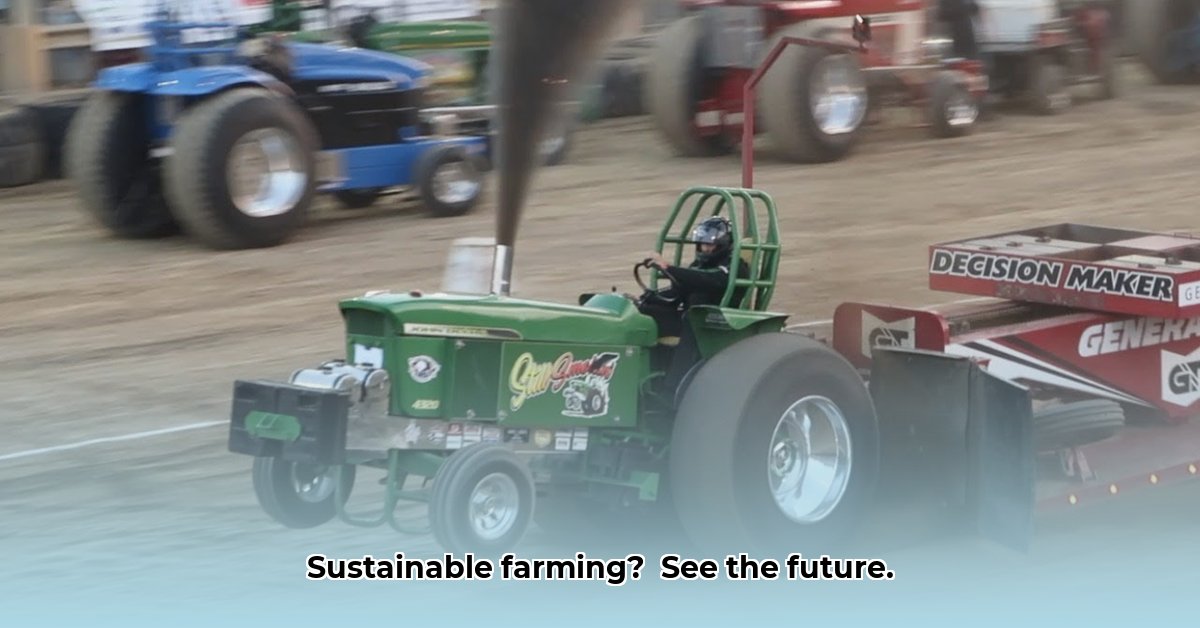
A Green Revolution on the Field
This year's Fayette Tractor Pull wasn't just about brute force; it was a compelling display of sustainable farming innovations. The competition showcased powerful tractors equipped with cutting-edge technology designed to minimize environmental impact while maximizing efficiency. This isn't simply about pulling the heaviest weight; it's about a revolution in how we cultivate our land. What can we learn from this year's event? For more details on modified tractors, check out this year's event.
Power and Sustainability: A Winning Combination
Forget horsepower alone – these tractors emphasized both power and eco-consciousness. Many featured advanced fuel injection systems significantly reducing emissions and fuel costs. Others boasted innovative tire designs minimizing soil compaction, a critical factor in maintaining soil health and productivity. This fusion of power and sustainability highlights a crucial shift in agricultural priorities. Do these technological advancements signal a wider trend in the industry?
"The tractors at Fayette were a real eye-opener," says Dr. Amelia Hernandez, Agricultural Engineer at the University of Kentucky. "The emphasis on fuel efficiency and reduced soil compaction clearly demonstrates a growing commitment to sustainable practices within the farming community."
Beyond the Competition: Farmer Insights and Innovative Practices
Interviews with participating farmers revealed a strong commitment to both winning and environmental stewardship. John Miller, a seasoned farmer from nearby Lexington, explained how his tractor's GPS system enables precision seeding and fertilization. This reduces waste and maximizes yield – a win-win for farmers and the planet. This level of precision farming is no longer a futuristic concept; it's a modern necessity for sustainable agriculture. What new techniques will farmers adopt next?
Sustainable Farming in Action: Key Technologies on Display
The Fayette Tractor Pull offered a unique look into impactful sustainable farming techniques. Many tractors incorporated technologies designed to lessen environmental impact:
Reduced-tillage Implements: These minimize soil disturbance, protecting the soil structure and reducing erosion—similar to carefully turning over a garden bed rather than tilling aggressively.
Precision Application Systems: These systems deliver fertilizers and pesticides precisely where needed, reducing waste and minimizing chemical impact on the environment.
Alternative Fuel Technologies: Some tractors utilized biofuels and renewable energy sources, showcasing a shift away from fossil fuels towards greener options.
This blend of traditional farming practices and technological innovation offers a blueprint for a more sustainable future.
Predicting the Future of Sustainable Farming
Based on observations at the Fayette Tractor Pull, several compelling trends are emerging:
The Rise of Precision Agriculture: GPS-guided machinery and sensor technologies will likely become commonplace, leading to autonomous tractors adapting to real-time data.
Fuel Efficiency Remains Crucial: The quest for fuel-efficient tractors will continue, driven by both economic and environmental concerns. This will encourage innovative designs and alternative fuel sources.
Alternative Fuels Take Center Stage: Biofuels and renewable energy sources, such as solar power, will likely see wider adoption, reducing reliance on fossil fuels.
Soil Health Takes Priority: Tractor tire and implement designs will continue to focus on preserving soil health, minimizing compaction for long-term productivity.
The Fayette Tractor Pull serves as a strong indicator of the future of agriculture. The showcased innovations clearly demonstrate that high performance, efficiency, and environmental responsibility can coexist. This event provides a compelling vision of agriculture's sustainable future. What will the next Fayette Tractor Pull reveal?